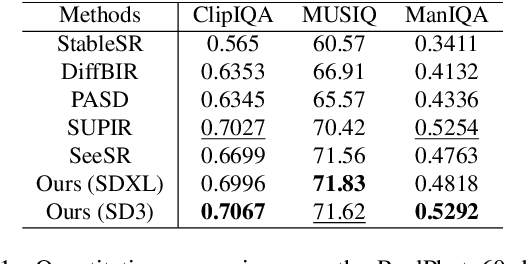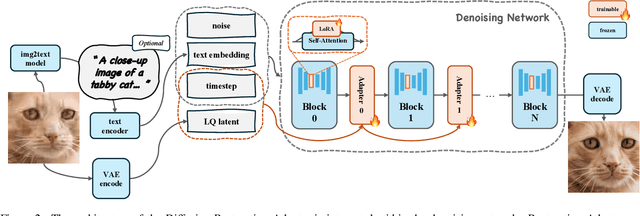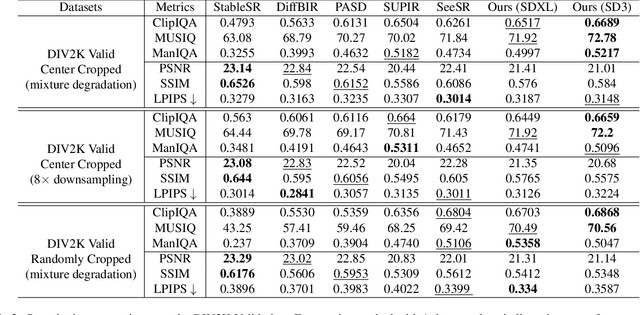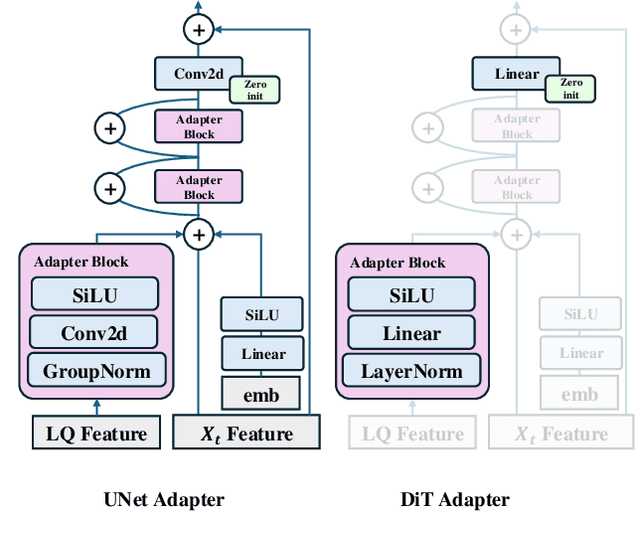Weihui Deng
Diffusion Restoration Adapter for Real-World Image Restoration
Feb 28, 2025



Abstract:Diffusion models have demonstrated their powerful image generation capabilities, effectively fitting highly complex image distributions. These models can serve as strong priors for image restoration. Existing methods often utilize techniques like ControlNet to sample high quality images with low quality images from these priors. However, ControlNet typically involves copying a large part of the original network, resulting in a significantly large number of parameters as the prior scales up. In this paper, we propose a relatively lightweight Adapter that leverages the powerful generative capabilities of pretrained priors to achieve photo-realistic image restoration. The Adapters can be adapt to both denoising UNet and DiT, and performs excellent.
A Unified Image Preprocessing Framework For Image Compression
Aug 15, 2022



Abstract:With the development of streaming media technology, increasing communication relies on sound and visual information, which puts a massive burden on online media. Data compression becomes increasingly important to reduce the volume of data transmission and storage. To further improve the efficiency of image compression, researchers utilize various image processing methods to compensate for the limitations of conventional codecs and advanced learning-based compression methods. Instead of modifying the image compression oriented approaches, we propose a unified image compression preprocessing framework, called Kuchen, which aims to further improve the performance of existing codecs. The framework consists of a hybrid data labeling system along with a learning-based backbone to simulate personalized preprocessing. As far as we know, this is the first exploration of setting a unified preprocessing benchmark in image compression tasks. Results demonstrate that the modern codecs optimized by our unified preprocessing framework constantly improve the efficiency of the state-of-the-art compression.
 Add to Chrome
Add to Chrome Add to Firefox
Add to Firefox Add to Edge
Add to Edge